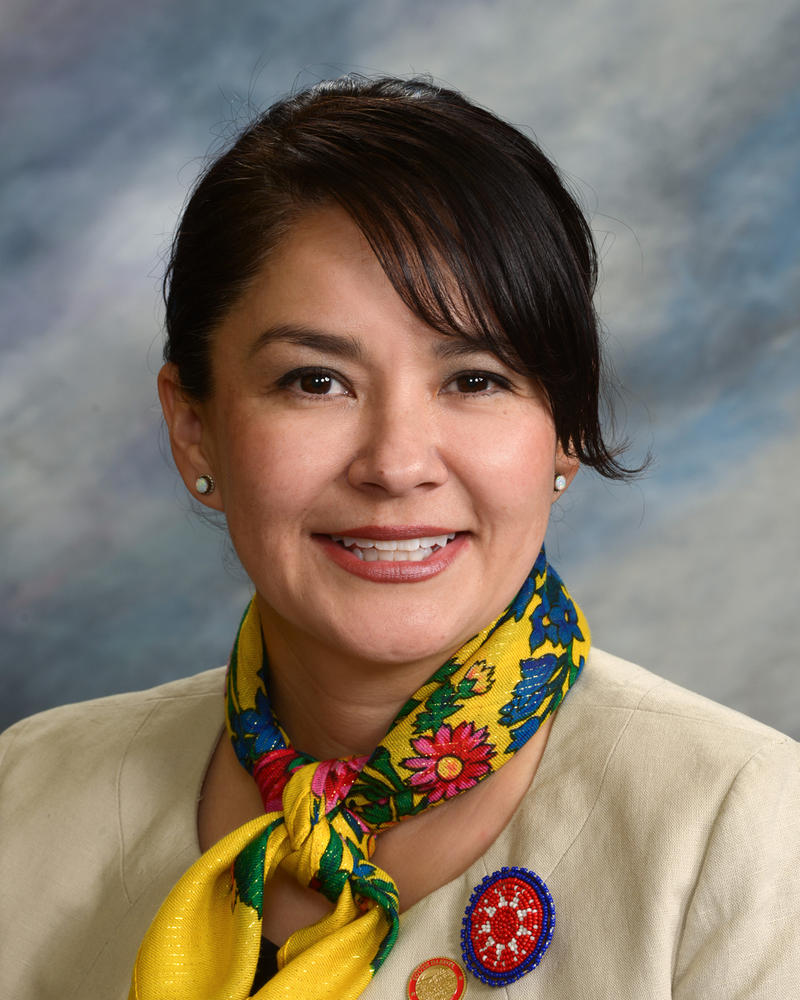
- Details
- By Darren Thompson
PIERRE, S.D. — A South Dakota state senator introduced a series of amendments on Feb. 1, 2021 that would include protections for individuals identifying as LGBTQ (Lesbian, Gay, Bi-sexual, Transgender) and Native American Two-Spirit in the State of South Dakota. Senate Bill 166 and 190 were introduced by State Senator Red Dawn Foster, an Oglala Lakota Democrat representing District 27, which includes Bennett, Haakon, Jackson, Pennington, and Oglala Lakota counties on the Pine Ridge Indian Reservation. They are the first bills sponsored by Foster, who is serving her second term as a South Dakota state senator.
The bills include provisions of existing laws that would protect individuals based on sexual orientation and gender identity with specific identification as Native American Two-Spirit. It is the first time the term Native American Two-Spirit is up for discussion in an official capacity in a state government.
“South Dakota’s existing Hate Crimes Law is woefully deficient, leaving out many vulnerable communities that are the target for bias-motivated crimes,” said South Dakota State Senator Red Dawn Foster while introducing Senate Bill 166 to the Senate Judiciary Committee. “This bill would add protections for those who identify as LGBTQ and Native American Two-Spirit to our hate crime law.”
South Dakota law does not prosecute hate crimes based on gender identity or sexual orientation. However, federal law has covered both categories since 2009, when the Matthew Shepard and James Byrd Jr. Hate Crimes Prevention Act was signed into law by President Barack Obama. Hate crimes committed on the basis of the victim's sexual orientation or gender identity can be prosecuted in federal court.
“I want you to understand the urgency of changing your mentality from the past 2,000 years and beyond,” said Monique Mousseau to the South Dakota Senate Judiciary Committee. “Brainwashing people into believing that there are Gods judging people must stop. There are consequences to suppression and oppression.”
“Since the arrival of Europeans, to what is now called the United States of America, there was, is and always will be Native American Two-Spirit, gays, lesbian, bi-sexual, transpersons, and queer, regardless of judgement from the brainwashed believers of European religion and hateful ignorance,” said Mousseau.
Senator Foster’s work aims to honor her people, particularly from her home community of the Pine Ridge Indian Reservation where traditional Lakota culture has long honored LGBTQ and Two-Spirit relatives. Colonization brought Western values inspired by Christianity where those identifying as LGBTQ have been outlawed and shunned from participating in many aspects of society, including marriage.
Although results are often underreported, a report published by the Federal Bureau of Investigation in November 2020 shows that hate crimes based on sexual orientation represent 16.7 percent of hate crimes, the third largest category after race and religion. Reporting hate crimes to the FBI is not mandatory. The continued legacy of colonialism leaves many Indigenous peoples experiencing higher rates of violence, trauma, abuse, and a variety of negative health consequences including being targeted for their sexual orientation and their gender identity.
Among those who inspired Foster’s sponsorship of SB 166 and SB 190 is Oglala Sioux tribal citizen Monique “Muffie” Mousseau, who was influential in the passing of her tribe’s hate crime law that offers protection to its LGBTQ and Two-Spirit citizens. In September 4, 2019, the Oglala Sioux Tribal Council passed hate crime legislation which protects LGBT and Two-Spirit individuals, with 14 votes in favor, 2 against and 1 abstention. The Oglala Sioux Tribe is the first tribe to enact such a law.
Mousseau had been living away from South Dakota for years and when she returned closer to home to care for her mother in 2016, she faced discrimination in securing employment and housing in Rapid City. Mousseau is a former police officer on the Pine Ridge Indian Reservation.
“When I returned to South Dakota, I worked overnight as a stocker at Wal-Mart,” Mousseau said to Native News Online. “But Two-Spirited people and their families began finding me, wanting to share horrific stories of abuse with me against our relatives in schools, the workplace and by law enforcement.”
“Many suicides were being reported to us by people who were Two-Spirited,” Mousseau said. “We had to do something.”
More Stories Like This
Native News Weekly (August 25, 2024): D.C. BriefsNavajo Nation Mourns the Passing of Former Vice President Rex Lee Jim
Deb Haaland Earns Endorsement From Communications Workers of America Local 7076
University Soccer Standout Leads by Example
Two Native Americans Named to Democratic Congressional Campaign Committee's“Red to Blue” Program
Help us defend tribal sovereignty.
At Native News Online, our mission is rooted in telling the stories that strengthen sovereignty and uplift Indigenous voices — not just at year’s end, but every single day.
Because of your generosity last year, we were able to keep our reporters on the ground in tribal communities, at national gatherings and in the halls of Congress — covering the issues that matter most to Indian Country: sovereignty, culture, education, health and economic opportunity.
That support sustained us through a tough year in 2025. Now, as we look to the year ahead, we need your help right now to ensure warrior journalism remains strong — reporting that defends tribal sovereignty, amplifies Native truth, and holds power accountable.
 The stakes couldn't be higher. Your support keeps Native voices heard, Native stories told and Native sovereignty defended.
The stakes couldn't be higher. Your support keeps Native voices heard, Native stories told and Native sovereignty defended.
Stand with Warrior Journalism today.
Levi Rickert (Potawatomi), Editor & Publisher
